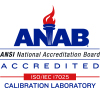 Posted on
Posted on 
MadgeTech, a pioneer in data logging technology, announces the launch of its groundbreaking LynxPro Series! This cutting-edge series marks MadgeTech’s debut in the realm of Bluetooth Data Loggers, offering a diverse range of options to address temperature monitoring needs.
Say goodbye to the hassles of manual temperature tracking, because the LynxPro Series is here to revolutionize the game. This innovation is meticulously designed to provide precise insights into temperature and humidity fluctuations.
LynxPro: Simplifying Temperature Monitoring
For overseeing expansive warehouses, intricate laboratories, or complex HVAC systems, the LynxPro stands as the trusted companion. Operating seamlessly within a temperature range of -20°C to 60°C, its exceptional precision ensures the unerring management of temperature.
LynxPro-RH: The Complete Solution
Seeking an all-encompassing solution? Look no further than the LynxPro-RH. This powerhouse seamlessly integrates ambient temperature measurement with humidity sensing, offering a comprehensive perspective of the surroundings. With the capability to measure -20°C to 60°C and 0 to 95% RH, the LynxPro-RH is meticulously crafted for applications such as HVAC optimization, cleanrooms, and cutting-edge storage facilities.
LynxPro-RTD: Precision Unleashed
When the necessity for remote temperature measurements arises, the LynxPro-RTD stands as the ultimate choice. Outfitted with a 48″ RTD (Resistance Temperature Detector) probe, it empowers you to measure temperatures across a wide range from -100°C to +200°C with unparalleled accuracy. Whether the terrain encompasses cryogenic environments, intricate industrial processes, or groundbreaking research applications, the LynxPro-RTD ensures the capture of critical temperature data with unmatched reliability.
LynxPro-VAX: An Asset for Vaccine Monitoring
In response to the critical need for vaccine monitoring, MadgeTech proudly presents the LynxPro-VAX. These specialized units come equipped with an external RTD and glycol buffer, ensuring full compliance with VFC programs. Available in various sizes of glycol bottles, the LynxPro-VAX can effortlessly accommodate any storage requirements. With a two-point calibration, it’s the ultimate solution for safeguarding vaccines.
With a simple button press, connections are established, readings are downloaded, reports are effortlessly generated, and they can be seamlessly dispatched to authorized recipients. Programming and device management have never been more user-friendly within the app. Additionally, all LynxPro devices seamlessly integrate with the latest version of MadgeTech 4 Data Logger Software.
Don’t miss out on the future of data logging. Embrace the LynxPro Series by MadgeTech and elevate your temperature monitoring to new heights! For more information and to explore our extensive range of products, visit www.madgetech.com.








